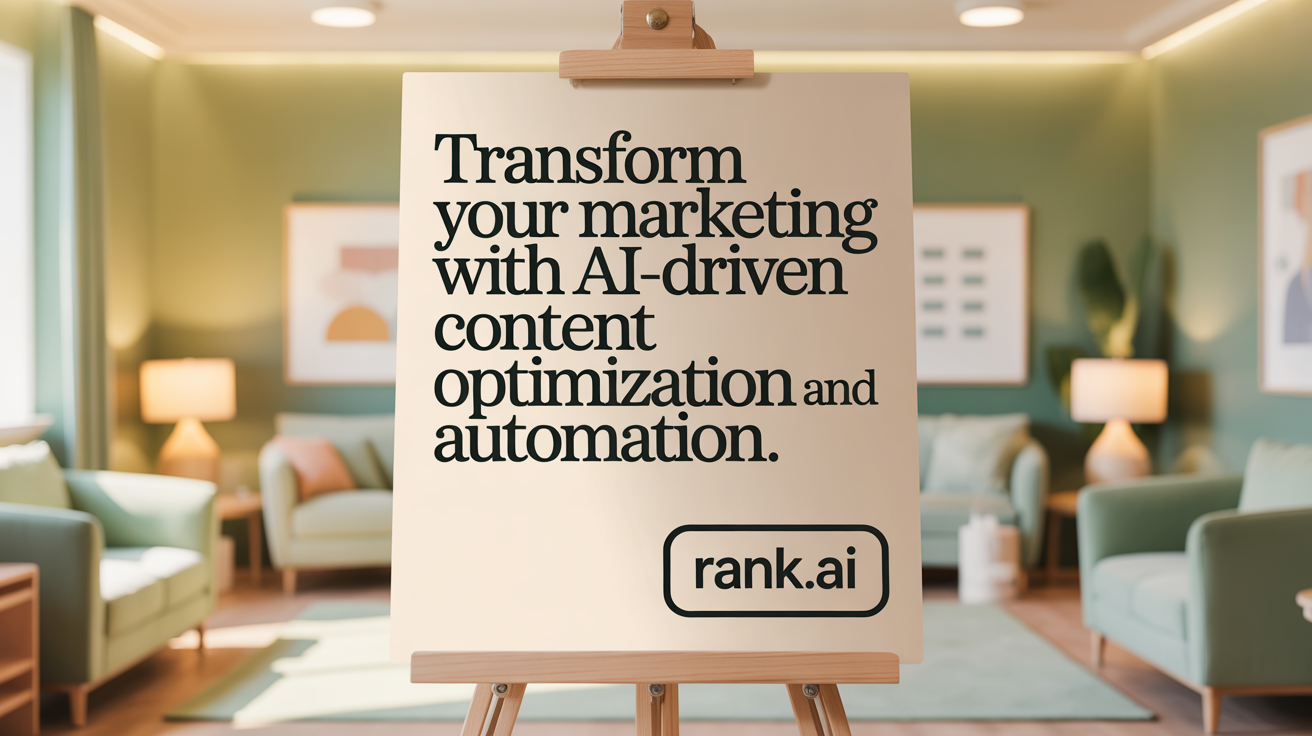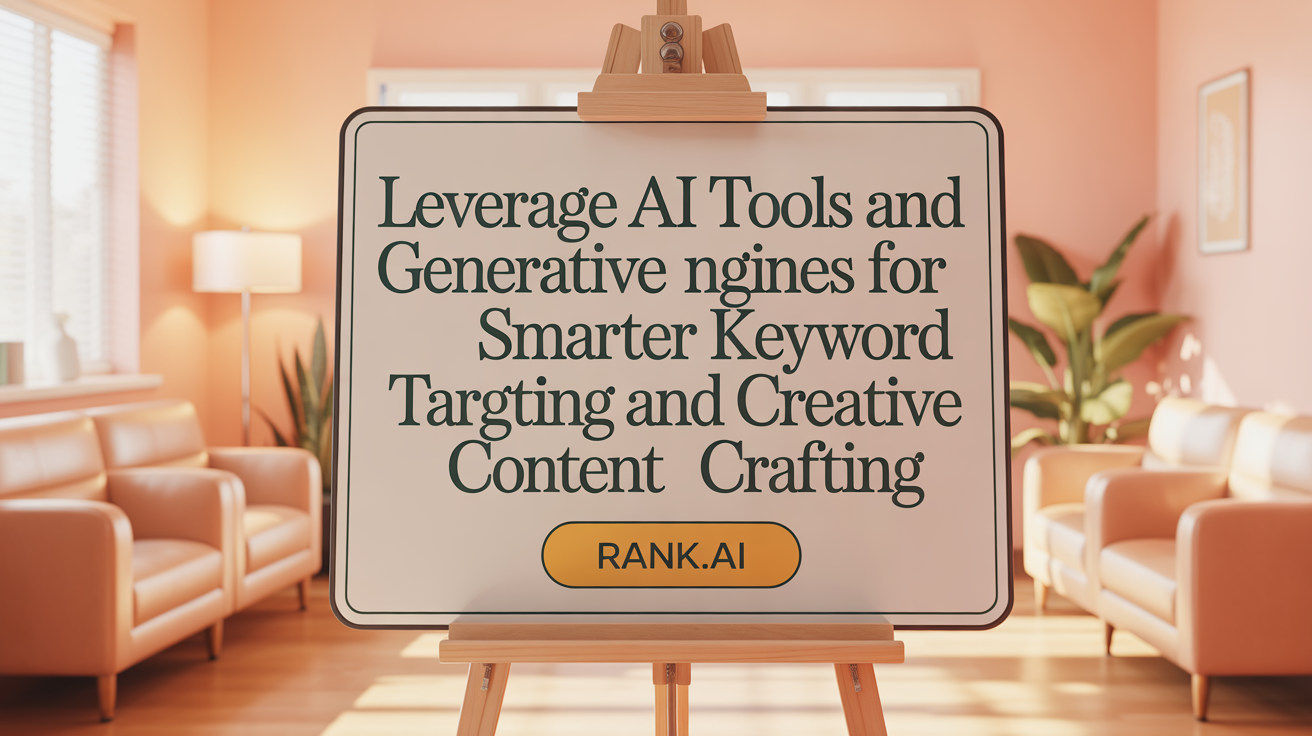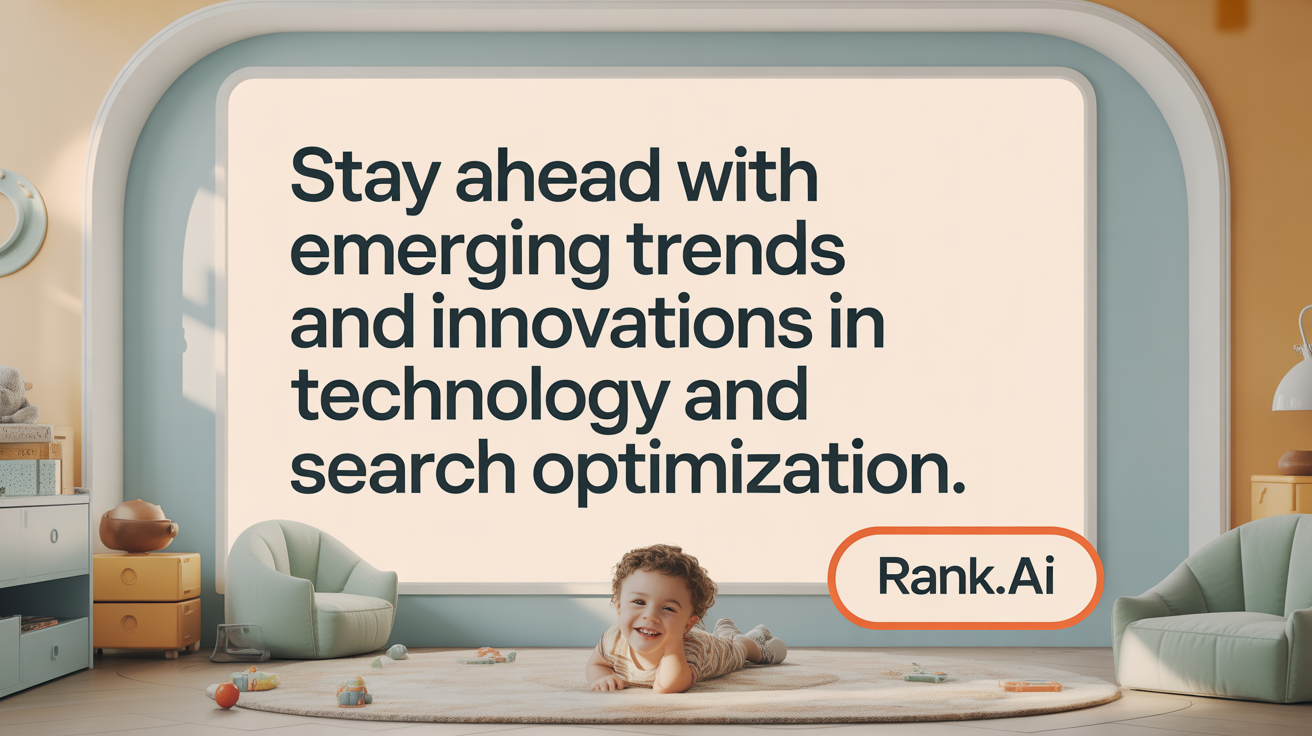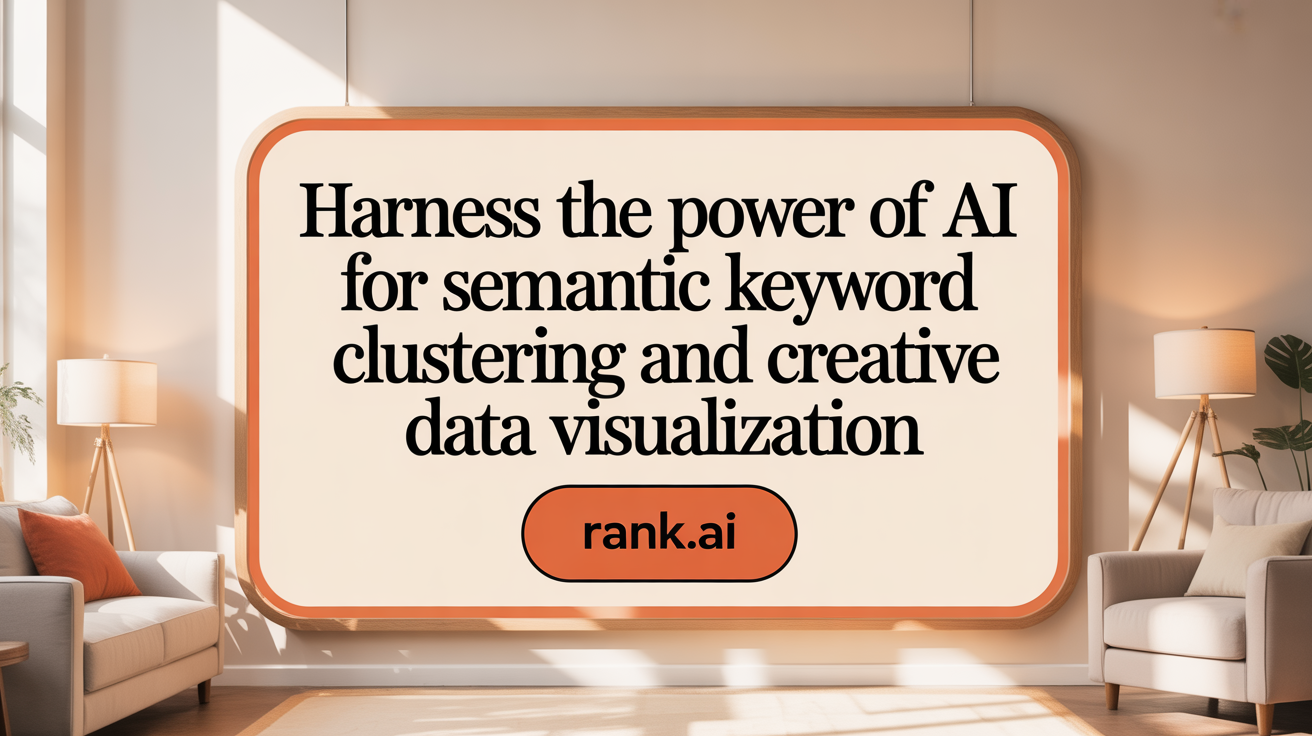Understanding the AI Transformation in SEO Keyword Strategy
Artificial intelligence is revolutionizing how marketers approach keyword research and SEO strategy development. Moving beyond simple keyword matching, AI enables intent-driven content creation, predictive analytics, and holistic optimization strategies that reshape the search marketing landscape. This article explores how AI technologies are redefining keyword strategy, the innovations driving this change, and what marketers need to know to stay competitive in an AI-powered SEO future.
AI's Impact on Search Algorithms and Digital Marketing Strategies
What is the overall impact of artificial intelligence on search algorithms and marketing strategies?
Artificial intelligence has fundamentally transformed how search engines operate and how digital marketing is conducted. AI enhances search results by better understanding user intent, context, and semantics, leading to more personalized and relevant answers. Technologies like Google's Search Generative Experience (SGE) synthesize information from multiple sources to deliver concise overviews, reducing reliance on traditional ranked links.
In marketing, AI enables hyper-targeting through predictive analytics and automated ad placement. Generative tools like ChatGPT optimize content creation, making workflows faster and more accurate, while predictive models forecast future trends and keyword opportunities. Routine tasks such as bid management, content testing, and performance monitoring are increasingly automated, freeing marketers to focus on strategic initiatives. The overall effect is a shift towards data-driven, personalized approaches that improve engagement and conversion rates.
However, as AI influences search and marketing, ethical considerations about data privacy, bias, and transparency remain critical. Ensuring responsible AI use helps maintain user trust and compliance with regulations, making AI an indispensable yet carefully managed component of future digital strategies.
Transforming Keyword Research: AI's Role in Strategy Development
How is AI transforming keyword research and strategy development in SEO?
AI is revolutionizing the way marketers approach keyword research and SEO strategy formulation. By analyzing vast amounts of data rapidly, AI tools can identify long-tail, semantically relevant, and niche keywords that might be overlooked using traditional methods. These insights help create content that more precisely matches what users are searching for, increasing relevance and rank potential.
One of AI's significant contributions is its ability to decode search intent by examining patterns and relationships within large datasets. This enables marketers to uncover keywords aligned with different user goals, whether informational, navigational, or transactional. Furthermore, predictive analytics models forecast emerging trends, allowing businesses to target keywords before they peak in popularity, gaining a competitive edge.
AI also enhances competitor analysis by scanning and benchmarking top-ranking pages, identifying gaps in content, and highlighting missed opportunities. This comprehensive approach enables marketers to refine their keyword targeting, focusing on high-impact terms and improving overall SEO effectiveness.
Additionally, AI tools assist in optimizing content structure and keyword distribution by analyzing semantic relationships and content relevance. They recommend natural placement of keywords within content, maintaining readability while boosting SEO scores.
In summary, AI accelerates data analysis, reveals deeper insights, and facilitates a more strategic approach to keyword research. This enables marketers to develop smarter, dynamic SEO strategies that better meet user needs and adapt swiftly to search trends.
For further exploration, you can search for "AI in keyword research and SEO strategy development" to find the latest tools and case studies.
Redefining Traditional SEO Practices with AI Advancements
How is artificial intelligence redefining traditional SEO practices?
Artificial intelligence is transforming SEO by enabling smarter, more adaptive strategies that go beyond keyword matching. AI-powered tools utilize advanced machine learning algorithms to perform real-time content optimization, analyze search trends, and predict user needs before they even explicitly search for information.
One of the most notable innovations is the integration of systems like Google’s Search Generative Experience (SGE), which delivers instant, conversation-like answers that synthesize content from various sources. This diminishes the importance of traditional ranking signals like backlinks, shifting focus toward user engagement metrics such as dwell time, click-through rate, and scroll depth.
Semantic search technologies, including BERT and MUM, enhance the understanding of natural language, allowing search engines to interpret user intent more accurately. This results in more relevant and personalized results, aligning content closer to user needs.
AI also amplifies the importance of structured data, voice, and visual search, making content accessible across multiple modalities. By optimizing for these features, brands can stand out in evolving search landscapes.
Furthermore, AI streamlines content creation and keyword research workflows, generating tailored content at scale and identifying emerging niche topics through predictive analytics.
Overall, AI is shifting SEO from a largely manual, link-focused discipline to a highly automated, user-centric approach. These advancements promise better visibility, higher engagement, and more precise targeting in the competitive digital environment. As AI continues to evolve, it will be essential for SEO professionals to stay updated and leverage these technologies to maintain an edge in search rankings.
Technological Shifts in Keywords and Search Experiences Powered by AI
How is AI changing keywords and search experiences from a technological standpoint?
Artificial Intelligence is revolutionizing how search engines understand and process user queries, marking a significant departure from traditional keyword-based approaches. Instead of relying solely on exact keyword matches, AI employs sophisticated natural language processing (NLP) techniques and semantic search capabilities. These enable search engines to interpret user intent more accurately, even when queries are complex or conversational.
Large language models such as Google’s Gemini facilitate multi-step reasoning within search interactions. Users can pose intricate questions that require understanding context, relationships, and layered information. This leads to more comprehensive and relevant responses, improving the overall search experience.
AI-powered tools like Google’s AI Overviews and Search Generative Experience (SGE) organize search results into summaries, visual snippets, and answer fragments. They deliver information rapidly, reducing reliance on traditional lists of links. These features provide personalized content suggestions, visual summaries, and multimedia integrations, making search results more engaging and easier to navigate.
Moreover, the rise of conversational and context-aware search queries allows users to interact naturally with search engines. Using voice or textual input, users benefit from real-time, dynamic responses tailored to their specific needs, enhancing usability.
Hybrid approaches combining generative AI and traditional search methods deliver not only accurate information but also intuitive results that anticipate user requirements. This technology shift encourages a more fluid, human-like search environment, where understanding context and intent takes precedence over simple keyword matching.
In essence, AI's advancements are transforming search from a keyword-dependent task into a context-rich, personalized experience. Searching now involves natural language, multi-step reasoning, and AI-driven summaries, revolutionizing how users find and interact with information online.
AI’s Role in Content Optimization and Marketing Automation

What role does AI play in content optimization and automation within search marketing?
Artificial intelligence has become a cornerstone of modern search marketing, transforming how businesses optimize their content and automate marketing activities. AI streamlines repetitive SEO tasks such as meta tag creation, URL structuring, and technical audits, freeing up time for strategic initiatives.
AI-driven personalization significantly enhances user engagement by tailoring marketing messages based on individual user data, including browsing history, search patterns, and preferences. This hyper-targeted approach ensures that content resonates more effectively with each audience segment.
Generative AI models, like GPT-4 and Jasper, empower marketers to produce high-quality, relevant content at scale. They assist in drafting articles, creating social media posts, and developing multimedia content, reducing the manual effort required and accelerating content creation workflows.
Automation extends to technical aspects such as site speed optimization, schema markup implementation, and competitor analysis. AI tools continuously monitor and analyze these factors, offering actionable insights and adjustments to improve search rankings.
Furthermore, AI enhances campaign targeting by analyzing vast data sets to identify high-value keywords, emerging trends, and content gaps. Predictive analytics forecast future search behaviors, enabling proactive strategy adjustments.
Overall, AI enhances precision, relevance, and operational efficiency. It allows search marketers to craft more personalized, targeted, and scalable campaigns, improving overall performance and delivering better ROI.
Influence of AI Tools and Generative Engines on Keyword Targeting and Content Creation

How do AI tools and generative engines affect keyword targeting and content creation?
AI tools and generative engines have transformed how marketers approach SEO and content development. These technologies automate many tasks, including keyword research, trend prediction, and content generation. By analyzing vast datasets, AI can identify emerging keywords and long-tail phrases that might otherwise be overlooked, enabling brands to target niche markets effectively.
One major advantage is the ability to scale content production rapidly. AI-driven tools like Jasper, Surfer SEO, and MarketMuse generate drafts, rewrite content, and suggest improvements at a pace that manual efforts cannot match. This scaling helps brands keep their content fresh and relevant, especially around competitive keywords.
However, focusing heavily on popular or trending keywords can lead to saturation. AI-generated content often relies on predictable language and familiar phrases, which can result in a flood of similar articles around certain keywords. To avoid this, strategies like targeting long-tail or niche keywords prove beneficial, helping content stand out amid high competition.
While automation accelerates growth, human oversight remains essential. Marketers need to review AI-crafted content for originality, accuracy, and alignment with brand voice. Without careful supervision, there's a risk of producing homogenized, low-quality content that lowers search rankings and diminishes brand credibility.
In essence, integrating AI tools with strategic human input allows for effective keyword targeting and scalable content creation. This synergy enhances relevance and authenticity, ensuring that content not only ranks well but also provides genuine value to users. Ultimately, balancing AI's efficiency with human expertise leads to more targeted, high-quality SEO outcomes that align with evolving search engine guidelines and user expectations.
Emerging Trends and Innovations in AI-Driven Search Optimization

What are the emerging trends and innovations in AI-driven search optimization?
The landscape of search engine optimization is evolving rapidly, driven by advances in artificial intelligence. One significant development is the rise of retrieval-augmented generation (RAG) models. These AI systems enhance relevance by pulling from extensive, high-quality content sources to generate precise answers, making search results more tailored and accurate.
AI tools are also transforming keyword research and on-page optimization. By analyzing vast datasets, they identify trending topics, niche keywords, and content gaps. This helps marketers craft content that aligns closely with user intent and industry trends.
Voice and visual search are becoming more integral to user interaction. Natural Language Processing (NLP) and image recognition technologies allow searches via spoken questions and visual inputs, providing more natural and diverse ways for users to discover information.
Predictive analytics is another game-changer. By analyzing click patterns, engagement metrics, and industry shifts, AI helps marketers anticipate changes in search algorithms or consumer behavior. This proactive approach enables quick adaptation, maintaining or improving search visibility.
Despite these innovations, fundamental SEO principles continue to hold importance. High-quality, authoritative content, structured data, and strategic keyword use remain essential. AI acts as an amplifier for these best practices, enabling more efficient and targeted optimization.
As search behaviors shift, maximizing the benefits of AI involves focusing on zero-click searches, which provide direct answers on the results page. Enhancing user engagement through personalized, multimodal content across devices and platforms will be critical for staying competitive.
In summary, emerging trends in AI-driven search optimization include advances in RAG models, voice and visual search enhancement, predictive industry insights, and a focus on delivering rich, user-centric content. These innovations, combined with established SEO fundamentals, are shaping the future of digital discovery.
AI’s Influence on Paid Search Tactics and Advertising Strategies
How does AI influence paid search tactics and advertising strategies?
AI plays a transformative role in shaping paid search and advertising by enabling sophisticated automation and personalized targeting. It allows marketers to optimize bids in real time through algorithms like Google’s Smart Bidding, which automatically adjusts bids based on performance data and user intent. This level of precision ensures that ad spend is allocated efficiently, reaching the right audiences at optimal moments.
One of the most notable impacts of AI is the rise of hyper-personalized ad content and advanced audience segmentation. By analyzing vast amounts of user data, AI helps create highly relevant ads tailored to individual preferences, behaviors, and search histories. This personalization not only boosts engagement but also improves conversion rates.
The integration of generative AI models, such as ChatGPT, is further redefining search dynamics. AI Overviews and similar features generate concise summaries and highlight content, which influence how ads are displayed and perceived. These changes mean that advertisers must now focus more on brand positioning and targeting high-intent keywords to stand out in a less cluttered, yet more competitive environment.
Moreover, AI enhances the ability to analyze and predict future trends, giving marketers foresight into consumer behaviors. This predictive power assists in optimizing ad copy, selecting the most effective landing pages, and refining campaign strategies across multiple digital channels.
Strategic considerations for advertisers include adopting AI-driven tools for automation, expanding beyond traditional keyword strategies, and focusing on relevance. By doing so, they can combat potential paid search decay, maximize campaign ROI, and leverage new AI-powered opportunities for growth.
Overall, AI's capabilities make paid search more intelligent, responsive, and targeted, ensuring that brands can adapt swiftly to evolving digital landscapes and consumer expectations.
Future Prospects and Strategic Considerations for AI in SEO
The future of AI in SEO looks increasingly dynamic and promising, with major innovations transforming how search engines operate and how marketers approach optimization. One significant development is the growth of AI-powered search experiences such as Google’s Search Generative Experience (SGE) and advanced models like Google Gemini. These platforms are shifting the focus from traditional keyword-based results to understanding user intent on a nuanced level. Instead of ranking pages solely based on keyword matching, AI systems generate direct, contextual responses that often eliminate the need for multiple clicks, leading to what is known as zero-click results.
This evolution requires marketers to rethink their strategies. Instead of obsessing over specific keywords, the emphasis is now on creating content that matches intent—answering questions, providing detailed explanations, and aligning with user needs. AI tools facilitate this by decoding semantics, cluster similar search intents, and enable predictive analysis of emerging trends. As a result, content must be crafted to be more conversational, question-based, and structured with schema markup to enhance discoverability in AI-driven results.
To stay competitive, understanding and utilizing AI literacy is crucial. Marketers must become proficient in selecting and deploying AI-powered SEO tools such as Surfer SEO, MarketMuse, and Clearscope. These tools help optimize content, forecast future keyword trends, and analyze competitors at scale. Additionally, voice search optimization is growing in importance, with AI enabling natural language understanding and long-tail query handling through voice assistants like Google Assistant and Alexa.
Balancing automation with creativity remains essential. While AI can automate content generation, technical tasks, and data analysis, human oversight ensures that brand voice, authenticity, and strategic insight stay intact. Investing in high-quality, authoritative content within a comprehensive content ecosystem aligned with the customer journey remains fundamental, especially as AI emphasizes E-E-A-T principles—Expertise, Authority, Trustworthiness, and Experience.
Furthermore, ongoing evolution requires marketers to prepare for a continuous change in search behaviors and algorithm updates. This includes adapting to new formats like visual, voice, and multimodal content, as well as diversifying content exposure across multiple platforms and surfaces. Strategic planning should incorporate a test-and-learn approach, evaluating AI versus manual methods to refine tactics.
In summary, the strategic outlook for AI in SEO involves embracing intelligent automation, deepening technical proficiency, and aligning content with user intent. These changes will define the competitive landscape as search engines become more personalized and context-aware, demanding a proactive and adaptable approach from marketers committed to future success.
AI-Powered Semantic Analysis and Structured Data Optimization

How does AI improve semantic keyword clustering and intent decoding?
AI tools analyze large datasets to understand the nuances of user search intent. They cluster similar keywords by semantic meaning, even when phrased differently, helping marketers identify core themes and user needs.
These tools decode the underlying intent—whether informational, navigational, transactional, or commercial—to ensure content aligns precisely with what users seek. This enhances relevance, leading to higher rankings and better engagement.
What role does structured data implementation with schema.org play?
Implementing schema.org markup allows websites to communicate more effectively with AI-driven search engines. By adding structured data, pages become easier to interpret, highlighting key information like products, reviews, or events.
Enhanced understanding through schema boosts visibility in rich snippets, answer boxes, and other AI-generated features, making content stand out in search results.
How are voice and visual search adapting with AI?
AI enables search engines to handle natural language queries, making voice and visual searches more intuitive. Content optimized with question-based headings, FAQs, and schema markup improves compatibility.
Visual search tools like Google Lens analyze images, so incorporating descriptive alt text and high-quality images with structured data helps content appear in visual search results.
How can content gain visibility in AI-driven search results?
To optimize for AI-driven results, focus on creating comprehensive, user-centric content that addresses specific questions with clear, structured information. Utilizing structured data and natural language improves chances of being featured in rich snippets, AI summaries, and answer boxes.
Continuous monitoring and updating content based on AI insights ensure ongoing relevance and ranking potential.
How do entity-level markups provide a ranking edge?
Adding entity-level markups enhances AI understanding of content by defining specific subjects, brands, products, or concepts. This precise tagging allows search engines to connect content with real-world entities, improving ranking relevance.
Pages with well-implemented markups gain advantages in voice search, visual search, and AI-generated summaries, increasing visibility across multiple AI-powered search features.
| Aspect | Importance | Benefits |
|---|---|---|
| Semantic Keyword Clustering | Decoding user intent | Greater relevance and ranking potential |
| Structured Data (schema.org) | Facilitating content understanding | Rich snippets, enhanced visibility |
| Voice & Visual Search | Adapting to new search modes | Increased discoverability, better user engagement |
| AI Entity Markups | Precise topic identification | Competitive edge in rankings |
| Overall Optimization | User-centric, intent-aligned | Higher engagement, improved CTR |
Balancing Automation and Human Strategy in AI-Driven SEO
Limitations of AI in Creative and Strategic Insights
While AI tools are revolutionizing SEO by providing data-driven insights and automating tasks, they still face limitations in offering human-like creative and strategic thinking. AI excels at analyzing patterns and optimizing content based on existing data but lacks the nuanced understanding of branding, emotional connection, and long-term strategic positioning that human experts provide. This gap emphasizes the importance of human oversight to ensure SEO efforts align with brand goals and audience expectations.
Importance of Maintaining Brand Voice and Authenticity
Authenticity and a consistent brand voice remain vital in digital marketing. AI-generated content, although efficient, can sometimes produce generic or impersonal outputs that may not fully embody a brand’s personality or values. Human input ensures that content resonates authentically with target audiences, fostering trust and loyalty. Balancing AI efficiency with human creativity helps maintain a genuine presence in the search landscape.
Human Oversight in AI-Generated Content
AI tools can produce a vast amount of content quickly, but human review is essential to verify accuracy, relevance, and tone. Editors can refine AI drafts, add strategic emphasis, and ensure compliance with legal and ethical standards. This oversight safeguards content quality and aligns it with audience needs, ultimately strengthening the effectiveness of SEO campaigns.
Continual Testing of AI vs Manual Strategies
As AI-driven SEO evolves, ongoing testing comparing AI-automated approaches with manual strategies is crucial. Human marketers should evaluate performance metrics such as engagement rates, conversions, and user feedback to determine the most effective tactics. Regular testing helps identify when AI approaches excel and when manual intervention might lead to better results.
Ethical and Data Integrity Considerations
Implementing AI responsibly involves ensuring data privacy, avoiding biases in algorithms, and maintaining transparency with users. Ethical practices build consumer trust and safeguard brand reputation. Marketers must stay informed about data governance and adhere to legal standards while leveraging AI’s capabilities to optimize SEO efforts.
This balanced approach, integrating AI’s efficiency with human creativity and oversight, is essential for sustainable and effective SEO strategies in 2025 and beyond.
Navigating the AI-Enhanced Landscape of Keyword Strategy
Artificial intelligence is fundamentally redefining keyword strategy and SEO practices by enabling deeper intent understanding, automated content optimization, and more dynamic campaign strategies. While AI tools provide unprecedented efficiency and insight, the integration of human creativity and strategic oversight remains vital to maintain authenticity and differentiation in an increasingly AI-saturated environment. As AI technologies continue to evolve, marketers must embrace new tools, refine their skills, and develop comprehensive, user-centric strategies that leverage AI's strengths while addressing its limitations. The path forward will require balancing cutting-edge innovation with enduring principles of quality and relevance to thrive in the AI-powered future of search marketing.
References
- How AI is Redefining Content Creation and Search Strategies
- AI SEO Trends 2025: How Artificial Intelligence Is Redefining Search ...
- Goodbye Clicks, Hello AI: Zero-Click Search Redefines Marketing
- How AI Is Reshaping SEO: From Keywords to Conversations
- The Future of SEO: How AI Is Already Changing Search Engine ...
- How AI Should (and Shouldn't) Influence Your Keyword Strategy
- How AI Is Redefining Paid Search Strategy - Symphonic Digital
- How generative AI is redefining search experiences - Rio SEO



